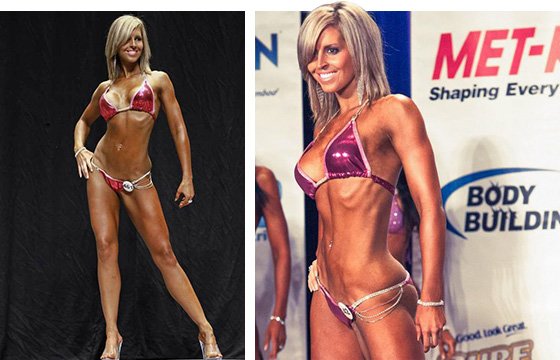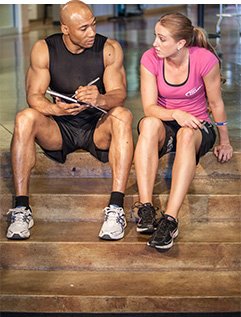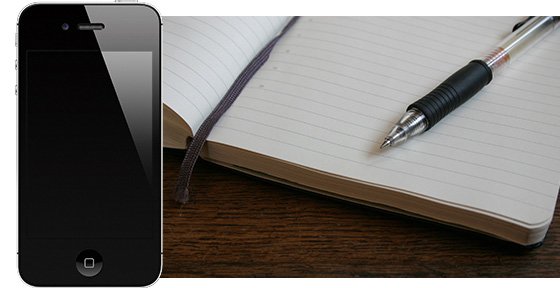It felt like Groundhog Day.
I woke up every morning at 6:30 a.m., entered the gym pre-workout in hand, and hopped onto the treadmill for an hour of steady-state cardio. Then I'd head over to the weights for an hour of full-body circuits. I trained everything and did the same workout every day.
I did this all on a diet of no carbs, no fat, and no fruit. That's right, even fruit was off the list—neither more morning strawberries, blueberries, nor pre-workout apple. Instead, my diet consisted of just a few egg whites and veggies.
Worst of all, the advice to go through this monotonous routine wasn't a result of my own misguidance. All of these recommendations came from my coach.
When I started my journey toward my first competition—the 2012 NPC Lost Angeles Championships—I chose a coach without doing the research beforehand. I didn't look into his background, speak with previous clients, or ask about his training. I went on a friend's recommendation and blind trust.
Because he had a pretty strong reputation on the National Physique Committee circuit in California, I was just excited to be on a team that had some well-known competitors. I thought my coach knew what it took to win … and technically he did. I placed third in my first competition and top 10 at the USAs. But, right after those two competitions, my coach decided to kick things up.
In addition to cheat meals being off the table, I started carb cycling. With the exception of my post-USA meal, it had been months since I had my coveted cheeseburger and sweet potato fries. My body continued to change. Until I hit a wall.

Last October, just three weeks shy of my show, my body stopped responding to diet and exercise. I wasn't dropping water weight and didn't know why. I now know this was just the beginning of metabolic damage. I took the stage because my coach told me I needed to.
After finishing just shy of first call out, I felt defeated. My coach blamed me for not doing well by saying it was because I'd eaten some fruit during my prep. Turns out, his idea of "fixing" me—taking away carbs and putting me on a heavy-duty fat burner during offseason—was to blame.
I was determined to find someone who could not only give me my energy back—and take away the continual puffy feeling—but to also get me back to tip-top shape the healthy way. I went through two more coaches until I found one who worked for me. And, the truth is, that's the hardest part. Not the dieting or the exercise but finding a trustworthy, knowledgeable guide to help you through the process. There's no right training program, and everybody's body responds differently.
Through trial and error, I learned what to look for to have a successful relationship with a coach. Learn from my mistakes and find the right coach for you the first time around.
1
Ask Around

Get referrals from people you trust in the industry. I go to friends in the industry who have a great physique and may be able to point me in the right direction.
If you're fairly new to the sport and need someone local, check with your gym for pointers.
2
Decide On Location
Decide if you need in-person consultations or if you can follow someone remotely. I know I need a program I can follow on my own—something I can do on the road and that easily translates from one gym to the next.
Before choosing a coach, I ask questions about proper technique and food substitutions, a common issue for a fitness fanatic on the go. To keep accountability and stay on task, I check in at least once each week and send progress pictures every Saturday.
Are you more inclined to stay on track with constant coaching? While you won't rely as heavily on progress photos to track your gains, I suggest a bi-monthly body fat test.
Still unsure what method to sign off on? Consider cost. While prices can vary, in-person coaching is almost always the pricier option.
3
Consult With Former Clients
Don't go with just any coach. Do your research. Look them up online—Facebook or a personal website can be a great start. View photos of current and past clients and find out what success they have had on the local and national circuits. Look at their before and after pictures to see how long it took them to achieve the desired look.
While this isn't an end-all deciding factor, it can set a good benchmark to see how a coach can manipulate a body. Look at how long it took them. Most prep programs take 12-16 weeks, but they can be longer or shorter depending on a client's condition. If you see a client drop 15-20 pounds in eight weeks, their plan probably wasn't healthy and definitely wasn't one you'll be able to maintain.
Remember to look beyond the big-name coaches. Just because they may not be one of the most renowned coaches in the world of bodybuilding doesn't mean they're not as knowledgeable as some of the bigger ones. I prefer coaches with a smaller roster because I feel like more than just a number.
4
Set Up An Interview
Set up a phone call where you can ask questions. Here are some key questions to ask and red flags to look for:

"What is your method of diet?"
If they give you some formulaic xyz method, they're not right for you. A good coach should not use a cookie-cutter diet for all their clients. It should be customized to meet your specific goals and daily lifestyle.
If you have a hard time following a plan, tell them that. Make sure they can make a plan that fits your lifestyle.
For example, I travel a lot so I cannot always make my own meals. I need someone who can help me make smart substitutions on the road.
"What are some key aspects of your program?"
If you hear the words endless hours of cardio, no carbs, and water depletion, run! This is a recipe for disaster and metabolic damage.
"When working remotely, always ask: How often should I check in?"
A coach should have you send progress pictures and weigh in at least once each week.
"What do you think some realistic goals are for me?"
Make sure you tell them your goals (lose weight, gain muscle, step on stage, etc.) and timing, and see if they can work with you on that.
If you're not meeting in person, send current pictures—front, back, and side—at the beginning of the program.
"What are your rates?"
Rates can be as low as $100/month to as high as $500/month, so be sure to get a few quotes on this, but don't go off rate alone! Make sure the coach you choose is a good fit for you.
"What is your policy on phone calls and check-ins?"
I think it helps when a coach is always available via text. While they might not be able to respond immediately, they should be able to answer when they have a moment.
"How hands-on are you?"
I like a coach who is invested—someone who will answer questions throughout the week and motivate me when I'm feeling down. If our personalities don't match, it won't work.
Coaches often become as close as family, so choose wisely. If they're remote, start with a phone call. If they're local, meet in person.
"Do you help with posing and suit choices?"
While it's not necessary, advice on suit color and posing can be helpful—especially if you're new to the sport.

